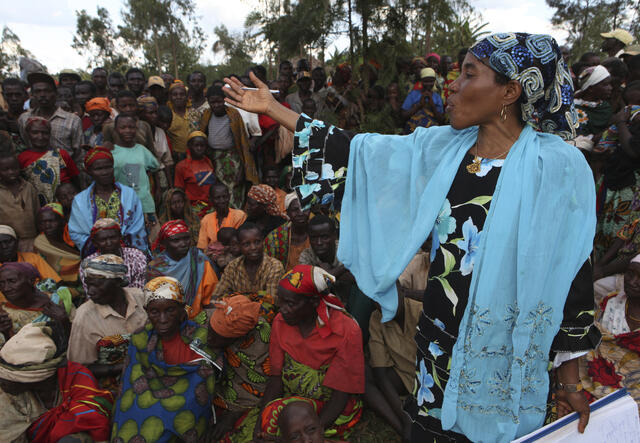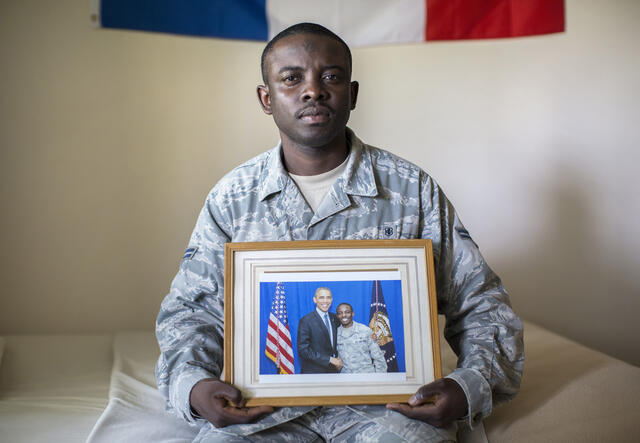If people do not have the power to make important decisions, they will struggle to improve their lives. The International Rescue Committee helps those who are recovering from conflict and disaster understand their rights and make informed choices for their futures.

Learn more about our goals for power and how we are working to meet them:
Ensure that people are able to choose where to live
How we get there:
- Supporting programs that inform displaced people of their rights and conditions in their location of choice;
- Working with decision-makers and communities to ensure people are safe and economically self-reliant in their location of choice;
- Ensuring people in the United States have personal identity documents and obtain appropriate legal status for themselves and family members.
Ensure that people are able to choose how to live
How we get there:
- Supporting programs that work to ensure that women, children and marginalized groups have equal social and economic choice as dominant groups;
- Working with local and national governments as well as non-state actors to make sure that policies and practices serve all people equally;
- Empowering women and girls to have control over household resources and participate in the decisions that affect their lives;
- Ensuring people in the United States can access and navigate core systems including health care, legal and education systems.
Ensure that people are able to influence the decisions that affect their lives
How we get there:
- Empowering people, particularly women and girls, at the local level to advocate for the changes that will improve their lives;
- Supporting people to provide feedback and make service providers more responsive;
- Strengthening local organizations, so they are more responsive to people’s needs;
- Ensuring people in the United States are able to advocate for their rights and understand the basic structures and processes of local, state and national governments.

Ensure that women and girls are equally able as men and boys to choose where to live, how to live, and how they are governed
How we get there:
- Creating bridges to safety for refugee women resettled in the United States;
- Developing resources to support partner networks in providing critical services and programs for women and girls globally;
- Creating opportunities for women and girls to be heard by policymakers and have their concerns recognized and prioritized.
Ensure that marginalized groups are equally able as the dominant group to choose where to live, how to live, and how they are governed
How we get there:
- Supporting programs that inform people of their rights and entitlements;
- Working with local and national governments as well as non-state actors to make sure that policies and practices serve all people equally;
- Creating opportunities for marginalized groups to be heard by authorities and policymakers and have their concerns recognized and prioritized.
Outcomes and evidence
The IRC's Outcomes and Evidence Framework supports people working in development and humanitarian aid to design effective programs. It delivers key information on outcomes related to health, safety, education, economic wellbeing, and power through theories of change that demonstrate how to achieve these outcomes, evidence for which interventions work or don’t work to achieve the outcomes, and guidance on how to measure progress against the outcomes.